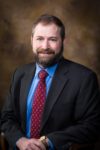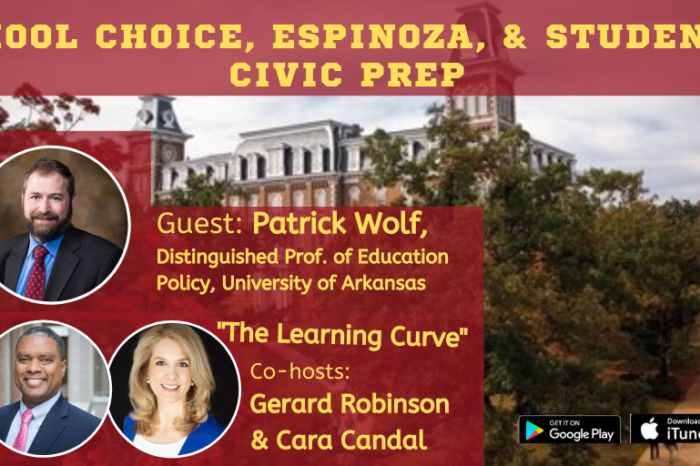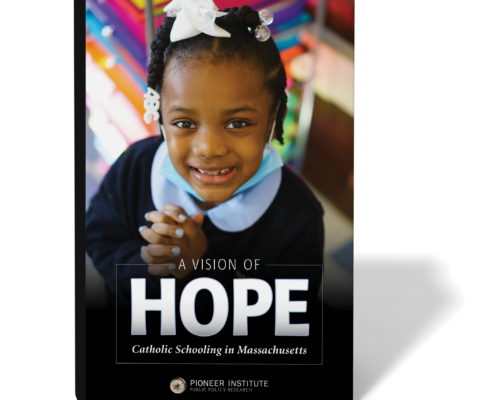U-Arkansas Prof. Patrick Wolf on School Choice, Espinoza, & Students’ Civic Prep
This week on “The Learning Curve,” Cara and Gerard are joined by Dr. Patrick Wolf, Distinguished Professor of Education Policy and 21st Century Endowed Chair in School Choice in the Department of Education Reform at the University of Arkansas College of Education and Health Professions. Professor Wolf shares his belief in the vital importance of the study of schooling, the rigorous evaluation of school reform programs, how he came to the study of school choice, and his deep commitment to training the next generation of education policy researchers. They turn to the topic on the minds of school choice advocates across the country – the U.S. Supreme Court’s imminent ruling in the Espinoza vs. Montana Department of Revenue case. Prof. Wolf offers his predictions on the Court’s most likely decision, and its scope and impact on the 37 states with bigoted Blaine amendments, with a special focus on the likely outcomes in states with excessive legal barriers to school choice, such as Massachusetts and Michigan. Lastly, he offers a preview of the findings from a chapter in a forthcoming book, School Choice Myths, that dispels misconceptions about the effectiveness of private vs. public schools in inculcating civic values and forming citizens.
Stories of the Week: Gerard and Cara pay tribute to one of the pioneers in the school choice movement, Dr. Howard Fuller, who announced his retirement from Marquette University this week after a distinguished career spanning three decades. The U.S. Department of Education released its interim final rule on equitable services, so districts that continue to ignore USED’s guidelines on funding for Title I students in both public and private schools will no longer have access to CARES Act emergency funds.
The next episode will air on July 3rd, 2020 with Gordon Wood, the Alva O. Way University Professor and professor of history emeritus at Brown University and author of the Pulitzer Prize-winning book The Radicalism of the American Revolution.
Interview Guest:
 Dr. Patrick Wolf is the Distinguished Professor of Education Policy and 21st Century Endowed Chair in School Choice in the Department of Education Reform at the University of Arkansas College of Education and Health Professions. He has led or assisted with most of the key evaluations of private school voucher programs over the past 15 years, including recent studies of programs in Washington, D.C., and Milwaukee, Wisconsin, as well as the statewide program in Louisiana. A 1987 graduate of the University of St. Thomas in St. Paul, MN, he received his Ph.D. in Political Science from Harvard University in 1995.
Dr. Patrick Wolf is the Distinguished Professor of Education Policy and 21st Century Endowed Chair in School Choice in the Department of Education Reform at the University of Arkansas College of Education and Health Professions. He has led or assisted with most of the key evaluations of private school voucher programs over the past 15 years, including recent studies of programs in Washington, D.C., and Milwaukee, Wisconsin, as well as the statewide program in Louisiana. A 1987 graduate of the University of St. Thomas in St. Paul, MN, he received his Ph.D. in Political Science from Harvard University in 1995.
Tweet of the Week:
A filmed version of the Pulitzer Prize-winning musical, created by Lin-Manuel Miranda, is set to premiere on streaming service Disney+ on July 3. https://t.co/Af8qGqdPQc
— CNN (@CNN) June 22, 2020
News Links:
The U.S. Department of Education’s interim final rule on equitable services:
https://oese.ed.gov/files/2020/06/Equitable-Services-Final-Interim-Rule.pdf
National school choice advocate Howard Fuller to retire from Marquette
Get Updates on Our Education Research
Related Research





















